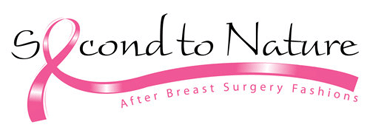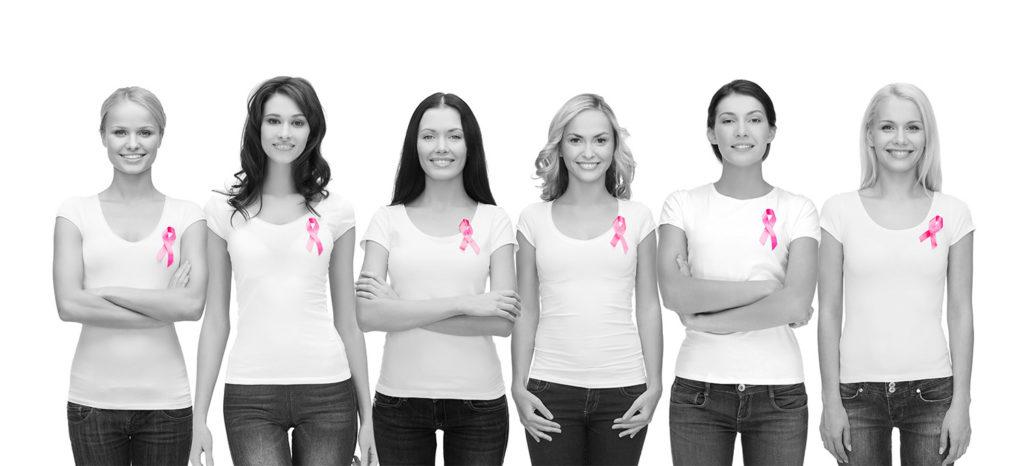Focusing on Ways Young Women Can Lower the Risk of Breast Cancer
This month we explore education relating to breast cancer in young women. Young women can carry a significant risk for this disease. Ours is a business focused on supporting women through the often significant health challenges. In our blog this month, Second to Nature would like to focus on ways young women can lower their risk.
We realize that suspecting and receiving a cancer diagnosis can be a difficult time at any age. But receiving a breast cancer diagnosis as a young woman can put one’s life off-balance. Dealing with a significant health problem like breast cancer can impact home and work relationships. This can feel especially stifling just when many young women are starting to establish themselves.
Most breast cancers are found in women over age 50, but about 11 percent of all new cases in the U.S. are in women younger than 45. If you are in the under-45 age group, this message is for you. If you know a woman under 45, share this information with them about breast cancer risks and ways to lower the risk.
First, Determine If You May Have a Higher Risk
There are certain questions you can ask yourself to determine if you could fall in the higher risk category. A woman under age 45 may have a higher breast cancer risk if the answer is yes to any of these:
1. Do you have any close relatives diagnosed with breast or ovarian cancer, significantly at age 45 or younger?
2. Do you have changes in certain breast cancer genes (BRCA1 and BRCA2)?
3. Are you of Ashkenazi Jewish heritage?
4. Did you receive radiation therapy/treatment to the breast or chest in childhood or early adulthood?
5. Do you have breast cancer or other breast health problems – for example, lobular carcinoma in situ (LCIS), ductal carcinoma in situ (DCIS), atypical ductal hyperplasia, or atypical lobular hyperplasia?
You may only be able to find answers to some of these questions with the help and guidance of a doctor. Your healthcare professional may refer you to a genetic counselor to check for the breast cancer genes. The doctor may also recommend early screenings or offer other regimens, such as medicine or surgery, that can lower the risk.
Second, Average Risk as a Young Woman Still Requires Diligence
If you did not answer “yes” to any of the questions above, you still carry an average risk of getting breast cancer at a young age. This average risk implies the importance of managing the risk actively. So, it is vitally important to know how your breasts normally look and feel.
Speak with your doctor if you notice any changes in your breasts. We defined some important breast health changes in our blog last month. A breast cancer diagnosis can feel especially devastating, and there are various factors that cause breast cancer in young women. Managing average risk with diligence can help catch cancerous changes in the breast early before they spread.
What More Can Young Women Do to Reduce Breast Cancer Risk?
We said before there can be several factors that influence breast cancer risk. Most young women who develop breast cancer do not have any known risk factors or history of the disease in their families. You can take heart in knowing there are also ways to reduce breast cancer risk.
If you are a young woman under age 45, keep these ways to reduce breast cancer risk in mind:
Maintain a healthy weight, and exercise regularly.
Keep an eye on the healthiest weight for your body. Be sure to exercise at least four hours a week. Make these two things a vital part of your way of life as a young woman. You will be sure to stoke your metabolism and reap positive health benefits.
Limit alcoholic drinks to no more than one per day.
Some young women never get into the habit of drinking alcohol. However, this may not be the case in some households, and there are studies showing the benefits of drinking a glass of red wine. The takeaway from this and other studies is to limit wine to one glass or one drink per day containing alcohol.
Avoid exposure to cancer-causing chemicals (carcinogens).
Contact with a carcinogen raises your breast cancer risk. So, whether it is first- or second-hand smoke, or some other toxic substance, avoid exposure to cancer-causing chemicals. If you cannot avoid these completely, determine ways to reduce the risk as much as possible.
A Few Additional Ways to Reduce Cancer Risk
Reduce exposure to radiation (tests, scans).
Younger women at higher risk for radiation exposure include a number working on the front lines of healthcare. Do all you can to ensure your safety during medical tests and scans. Talk with your healthcare professional about your concerns when scheduling mammograms, X-rays, CT scans, and PET scans.
Know the risks of hormonal therapies and contraceptives.
Many young women benefit from prescribed hormone replacement therapy or birth control pills (oral contraceptives). If you are taking either of these substances or have in the past, ask your doctor about the breast cancer risks to decide if these may have an impact on your health.
Breastfeed your babies, if possible.
The long-standing assertion that “breast is best” holds true here. For mothers who are able to nurse their babies by breastfeeding, it offers a boost in reducing breast cancer risk. Empower your breastfeeding knowledge and journey by contacting the La Leche League USA for information and support.
Support for Young Women with Breast Cancer at Second to Nature
Second to Nature in Roanoke, Virginia, provides dedicated support for women of all ages undergoing breast cancer. We specialize in breast forms and after breast cancer surgery fashions that restore confidence and well-being.
For more information on breast cancer and risks for young women, visit the CDC website.
Contact Second to Nature for an appointment at (540) 366-2711 or use our contact form. We are located in Roanoke in the Woodhaven Office Park, at 5450 Peters Creek Road. Follow us on Facebook to stay up to date with the latest news and specials.We are dedicated to breast cancer education and empowerment on breast cancer in young women.

